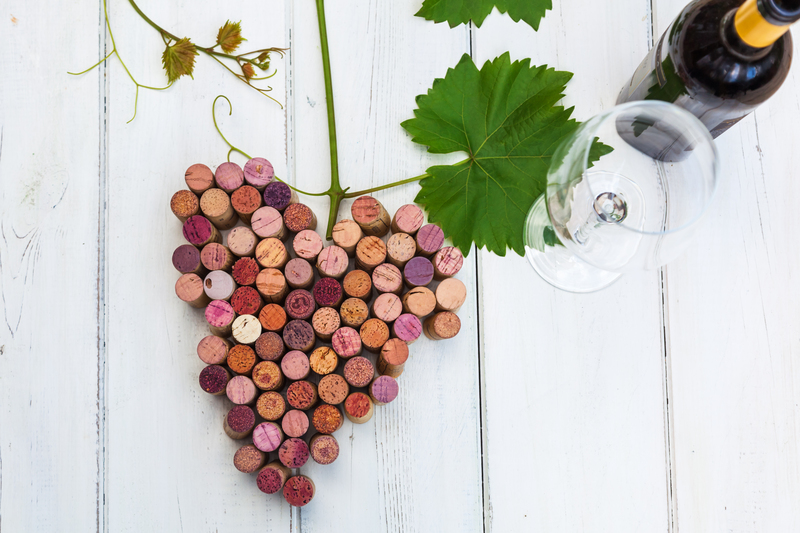Finding Nearby Drop-Off Points for Pots and Pans Recycling
Are you looking for convenient and eco-friendly ways to recycle your old cookware? This comprehensive guide will help you discover the easiest methods and nearby drop-off points for pots and pans recycling in your local area.

Why Recycle Pots and Pans?
Every year, millions of cookware items are discarded in landfills, contributing to environmental pollution and resource wastage. Recycling pots and pans is a vital step toward reducing landfill waste, conserving metal resources, and promoting sustainable living. Whether your cookware is made from aluminum, stainless steel, copper, or cast iron, most metals can be recycled and given a second life as new products.
- Reduces Metal Waste: Metals such as aluminum and steel take hundreds of years to decompose in landfills.
- Conserves Natural Resources: Recycling reduces the need for mining new metals.
- Energy Efficiency: Making products from recycled metals requires much less energy than producing new ones from raw ore.
- Eco-Friendly: Proper recycling significantly decreases environmental pollution.
Still, recycling cookware isn't as simple as tossing it into your curbside recycling bin. Many recycling programs do not accept large metal items. Understanding where to drop off cookware for recycling is essential.
Understanding What Cookware Can Be Recycled
Before searching for local recycling drop-off locations for pans and pots, it's important to know what types of cookware are accepted for recycling. Here is a breakdown:
Recyclable Cookware Materials
- Stainless Steel: Highly recyclable and accepted at most scrap metal yards.
- Aluminum: Lightweight and recyclable, even if it has a nonstick coating (though check with your recycler).
- Copper: Valuable and often accepted by specialized scrap metal buyers.
- Cast Iron: Fully recyclable, though very heavy.
Non-Recyclable Cookware Items
- Ceramic-Coated Pans: Usually not recyclable via regular scrap yards.
- Glass Cookware: Like Pyrex, this isn't accepted in metal or glass recycling streams.
- Plastic Handles or Lids: Remove these before recycling metal parts for the maximum chance of acceptance.
Tip: Always clean your cookware before dropping it off. Remove food residues for easier processing.
How to Find Nearby Drop-Off Points for Pots and Pans Recycling
Locating a nearby recycling drop-off point for cookware can be quick and straightforward when you know where to look. Here are several effective methods to help you find the right spot for your old pots and pans:
1. Use Specialized Online Recycling Directories
- Earth911: One of the largest recycling search engines in North America. Visit Earth911's Recycling Search and enter "pots and pans" along with your zip code to generate a list of local recycling centers that accept cookware.
- Recycling Locator Tools: Many municipalities have online tools or databases to find recycling drop-off points for old cookware. Search "[your city/town] recycling locator" in your search engine.
- Local Waste Management Websites: Visit your city's official waste management or public works webpage for a list of items accepted at recycling centers and special drop-off events.
2. Call Your Local Scrap Metal Yards
Scrap metal yards are often the best places for cooking pan recycling drop off. These facilities accept a wide range of metals and often pay for valuable metals like copper. Simply call ahead to confirm if they accept household cookware and ask about their drop-off process.
3. Retailer-Based Cookware Recycling Programs
- National Kitchen Chains: Some major kitchenware retailers periodically offer recycling programs or trade-in events. Ask at stores such as Sur La Table, Williams Sonoma, or Bed Bath & Beyond.
- Large Hardware Stores: Certain Home Depot or Lowe's locations have initiated periodic metal recycling drives, including old cookware.
Pro Tip: When in doubt, ask customer service at your local store if they know of upcoming collection events or accept cookware for recycling.
4. Community Recycling Events & Household Hazardous Waste Days
Many communities host annual or semi-annual recycling events, where residents can bring metals, electronics, and other hard-to-recycle items. Some cities extend these events to include recycling cookware such as pots and pans. Check community bulletin boards, municipal newsletters, or your town's website for upcoming events.
5. Donate Usable Cookware to Local Charities
Although this isn't technical recycling, donation is an environmentally friendly option for cookware that is still in good condition.
- Local Thrift Stores: Goodwill, Salvation Army, and other charitable organizations frequently accept cookware donations.
- Homeless Shelters & Food Banks: Community kitchens often need extra cookware.
- Freecycle Groups: Offer your old pots and pans for free pickup through Freecycle or community Facebook groups.
6. Municipal Drop-Off Locations for Metal Goods
Most cities have one or more drop-off locations for metallic household goods. These municipal facilities are a reliable option for pots and pans recycling drop-off. Verify if your local recycling center accepts cookware. Sometimes, the "bulk waste" or "metal items" section of the transfer station is the right place.
7. Manufacturer Take-Back Programs
Some cookware brands have sustainability initiatives that enable customers to return old cookware for responsible recycling. Check brands like Calphalon or GreenPan for details on their take-back recycling programs.
What to Expect at a Pots and Pans Recycling Drop-Off Point
- Sorting: You may be asked to separate cookware by metal type (aluminum, stainless steel, etc.).
- Cleaning: Centers generally require items to be clean and free from excess food or plastic parts.
- Weighing: Scrap yards may weigh your items and might even pay you for valuable metals like copper or cast iron.
- Acceptance Limits: There may be restrictions on the number or size of items you can bring at one time.
Additional Tips for Responsible Pots and Pans Disposal
Upcycling:
If your cookware is no longer suitable for the kitchen but still in decent shape, consider upcycling old pots and pans into planters, garden tools, or art projects.
Removing Non-Metal Attachments
Plastic and wooden handles or non-metal lids should be removed from your cookware before recycling. This ensures a higher recycling yield and prevents contamination of metal batches.
Check for Nonstick Coatings
Some scrap yards do not accept non-stick-coated cookware due to the chemicals in Teflon and similar coatings. Verify with your chosen drop-off site before arriving.
Small Appliances:
If your pots or pans are part of a small kitchen appliance (like an electric skillet), look for electronics recycling events or e-waste drop-off points.
Benefits of Recycling Cookware Locally
- Supports Community Recycling Programs: Your participation helps keep local initiatives sustainable.
- Reduces Transportation Emissions: Local recycling reduces the carbon footprint compared to landfill shipping or long-distance hauling.
- Promotes a Circular Economy: Old cookware can be reprocessed into new products or infrastructure components.

FAQs About Pots and Pans Recycling Drop-Off
Q: Can I put my pots and pans in my regular curbside recycling bin?
A: Usually, no. Most curbside programs do not accept bulky items or scrap metals. Always use designated drop-off points for kitchenware recycling.
Q: How do I prepare cookware for recycling?
A: Remove food, wash your pots and pans thoroughly, and detach any non-metal parts like handles or lids.
Q: Are non-stick pans recyclable?
A: Many centers do not accept non-stick coatings due to chemical content, but check with local scrap yards. Some areas accept them if the coating is removed.
Conclusion: Make a Difference by Recycling Your Old Cookware
Properly recycling pots and pans is a responsible way to minimize household waste, protect the environment, and contribute to resource conservation. By following the steps above, you'll be ready to find the closest drop-off location for pots and pans recycling in your city or town. Not only will you declutter your kitchen, but you'll also help reduce the demand for new raw materials.
Remember: The best place to start is your own community! Use online tools, call local facilities, and stay updated on recycling events to ensure that your old cookware is disposed of properly and sustainably.
